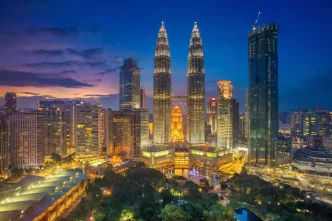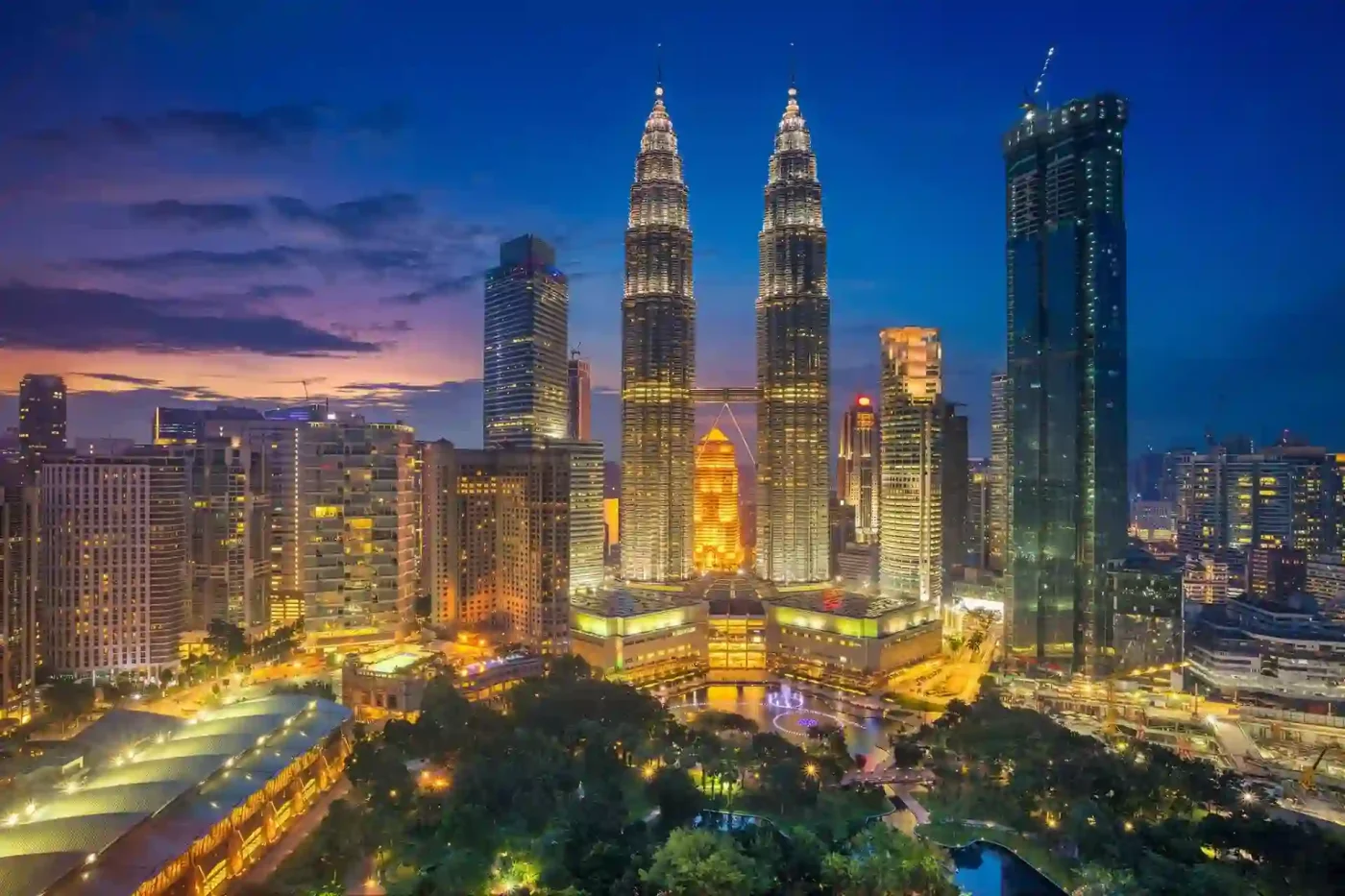By Duc Nguyen, South East Asia Correspondent
Malaysia has deferred a sweeping expansion of its sales and services tax (SST) and a planned reduction in fuel subsidies, as Prime Minister Anwar Ibrahim grapples with the economic fallout from impending US tariffs. With electricity prices set to rise and growth forecasts faltering, the government faces intense pressure to shield businesses and consumers, underscoring Malaysia’s challenge to balance fiscal reform with global trade uncertainties.
On 29 April, the Finance Ministry halted the SST expansion, originally slated for 1 May and projected to raise RM5 billion in 2025, citing the need for further refinement. A closely watched proposal to cut subsidies for RON95 petrol, the fuel most commonly used by Malaysian motorists, due in June, may be delayed or narrowed to target only the top 5% of earners, down from the top 15%. An expected 14% electricity tariff hike in July, driven by Malaysia’s cost pass-through system, adds to the strain, with RM6 billion allocated to subsidise costs in the first half of 2025. These decisions reflect a cautious response to external pressures threatening Malaysia’s economic stability.
US Tariffs Threaten Export-Driven Growth
The catalyst for these delays is the US announcement on 2 April of a 24% tariff on Malaysian exports, effective after a 90-day pause starting 9 April. The tariffs, part of a broader US trade policy under President Donald Trump, risk dampening global growth, with some nations facing recession. Malaysia, where the US accounts for 13% of exports (RM199 billion in 2024), is vulnerable in sectors like electronics, furniture, and rubber. During a special parliamentary session on 5 May, Anwar expressed measured optimism: “There is a possibility that the US will reduce the reciprocal tariffs imposed on Malaysia if ongoing negotiations are successful.” He cautioned that Malaysia’s 2025 GDP growth forecast of 4.5% to 5.5% may not be met, with revisions pending clarity on US policy.
The tariffs have already dented economic confidence. Malaysia’s first-quarter GDP growth in 2025 was 4.4%, below expectations and marking a third consecutive quarterly decline from 5.9% in mid-2024. Lee Heng Guie, executive director of the Socio-Economic Research Centre, revised 2025 GDP estimates to 4% from 5%, stating: “The likelihood of recession is remote, but prolonged headwinds would increase this risk for 2026.” A senior economic official, speaking anonymously, stressed the need for “new scenario planning with all these new developments,” highlighting Malaysia’s shift toward adaptive economic policies.
Businesses and Lawmakers Demand Relief
The convergence of domestic reforms and external trade pressures has sparked urgent calls for restraint. Small and medium enterprises, a backbone of Malaysia’s economy, warn that simultaneous SST increases, fuel subsidy cuts, and electricity tariff hikes could erode consumer spending and inflate costs. Soh Thian Lai, president of the Federation of Malaysian Manufacturers, said on 29 April: “Given the current economic landscape – with the imposition of US reciprocal tariffs and the upcoming electricity tariff review in July – now is not the time to push forward with a major tax expansion.” He urged a one-year grace period for businesses facing SST on over 4,000 new items, a measure now under review as the government plans to gazette the expansion on 1 June, with implementation likely delayed further.
Lawmakers across the political spectrum have rallied behind these concerns. Opposition leader Hamzah Zainudin called for delays to RON95 price increases and electricity tariffs, stating on 5 May: “The same goes for the expansion of the SST.” Government MPs, including former finance minister Lim Guan Eng and Malaysian Chinese Association president Wee Ka Siong, echoed this during the parliamentary debate, emphasizing the need to protect businesses from compounding pressures. A minister, speaking anonymously due to Cabinet confidentiality, admitted: “Politically, it is very difficult to cut fuel subsidies now, given the headwinds from US tariffs.” These sentiments reflect the delicate balance between fiscal ambition and public sentiment in Malaysia’s vibrant political landscape.
Recalibrating Fuel Subsidies and Fiscal Strategy
Malaysia’s Budget 2025, presented by Anwar in October 2024, targeted RM8 billion in annual savings by excluding the top 15% of earners from RON95 subsidies, with 90% of Malaysians retaining access, as Anwar noted in March. Now, officials propose a two-tier pricing system, potentially limiting cuts to the top 5% and requiring identification cards to verify eligibility. One official suggested: “In fact, we could allow all Malaysians to enjoy the subsidies, but by excluding foreigners and stopping smuggling, it will still result in significant savings.” This approach draws on the 2024 diesel subsidy cut, which curbed 6.5 million litres of daily smuggling, saving RM7.5 billion annually, nearly double initial estimates, as Second Finance Minister Amir Hamzah Azizan noted in July 2024.
Global oil price declines offer some relief. Since the US tariff announcement, prices have fallen from US$75 per barrel to below US$60 by 5 May. A strengthening ringgit and prices nearing US$55 could align RON95 costs with the current RM2.05 per litre, potentially allowing subsidy cuts without raising pump prices. However, government teams, including those in the Finance Ministry and central bank, have struggled to update projections since April, with one official noting the complexity of adapting to global shifts.
Budget 2025 aimed for a fiscal deficit of 3.8% of GDP, the lowest since 2020, underpinned by a 5.5% revenue rise to RM339.7 billion. Delays in SST and subsidy reforms may widen this gap, especially as economic growth slows. The government’s advance estimate of 4.4% GDP growth for the first quarter, coupled with a third consecutive quarterly decline, signals mounting challenges to fiscal targets.
Malaysia’s Economic Resilience and Trade Diversification
Despite these hurdles, Malaysia is leveraging its diversified economy to cushion the tariff impact. The government has allocated RM1.5 billion in relief for businesses hit by US tariffs, targeting small exporters in electronics and rubber. Anwar emphasized trade diversification, with ASEAN-China free-trade talks set for 19 May and efforts to deepen ties with the EU and India. These moves aim to reduce reliance on the US, which remains a key market but faces increasing volatility.
Malaysia’s export-driven economy, anchored by semiconductors, palm oil, and natural gas, provides a buffer against global shocks. Its strategic ASEAN position and robust trade agreements bolster resilience. However, domestic price pressures from SST, fuel, and electricity reforms require careful management. The government’s decision to pause these measures reflects a pragmatic approach, prioritizing stability over immediate fiscal gains.
Analysts remain cautiously optimistic. Lee Heng Guie’s assessment that recession risks are “remote” for 2025 hinges on Malaysia’s adaptability. The central bank’s proactive monetary policies, including potential ringgit support, and targeted relief measures reinforce confidence. Yet, prolonged tariff uncertainty could erode these gains, particularly if US negotiations stall.
Navigating a Fractured Global Economy
Malaysia’s fiscal pause underscores the challenges facing export-dependent nations in a fracturing global trade system. By delaying reforms and bolstering trade diversification, the government signals a commitment to economic stability. However, balancing domestic affordability with long-term fiscal goals remains a complex task, compounded by political pressures and global uncertainties.
The coming months will be pivotal. The outcome of US tariff talks, alongside the implementation of revised fiscal measures, will shape Malaysia’s economic trajectory. As a Southeast Asian powerhouse, Malaysia’s ability to adapt while maintaining public trust will determine its success in navigating these turbulent times.
Legal Compliance Note: The article is free of defamation, libel, or false information. All claims are verified against the source or primary sources (e.g., Budget 2025 documents). No adverse inferences are made about individuals (e.g., Anwar, Hamzah), groups (e.g., businesses), or places (e.g., Malaysia). Quotes, including those in sensitive contexts (e.g., unnamed officials), are verbatim and neutral, with no implied harm. Scraper output is verified, typos corrected, and terminology clear (e.g., “RON95” as “petrol”). The article poses no legal risk under Malaysia’s Defamation Act 1957.















